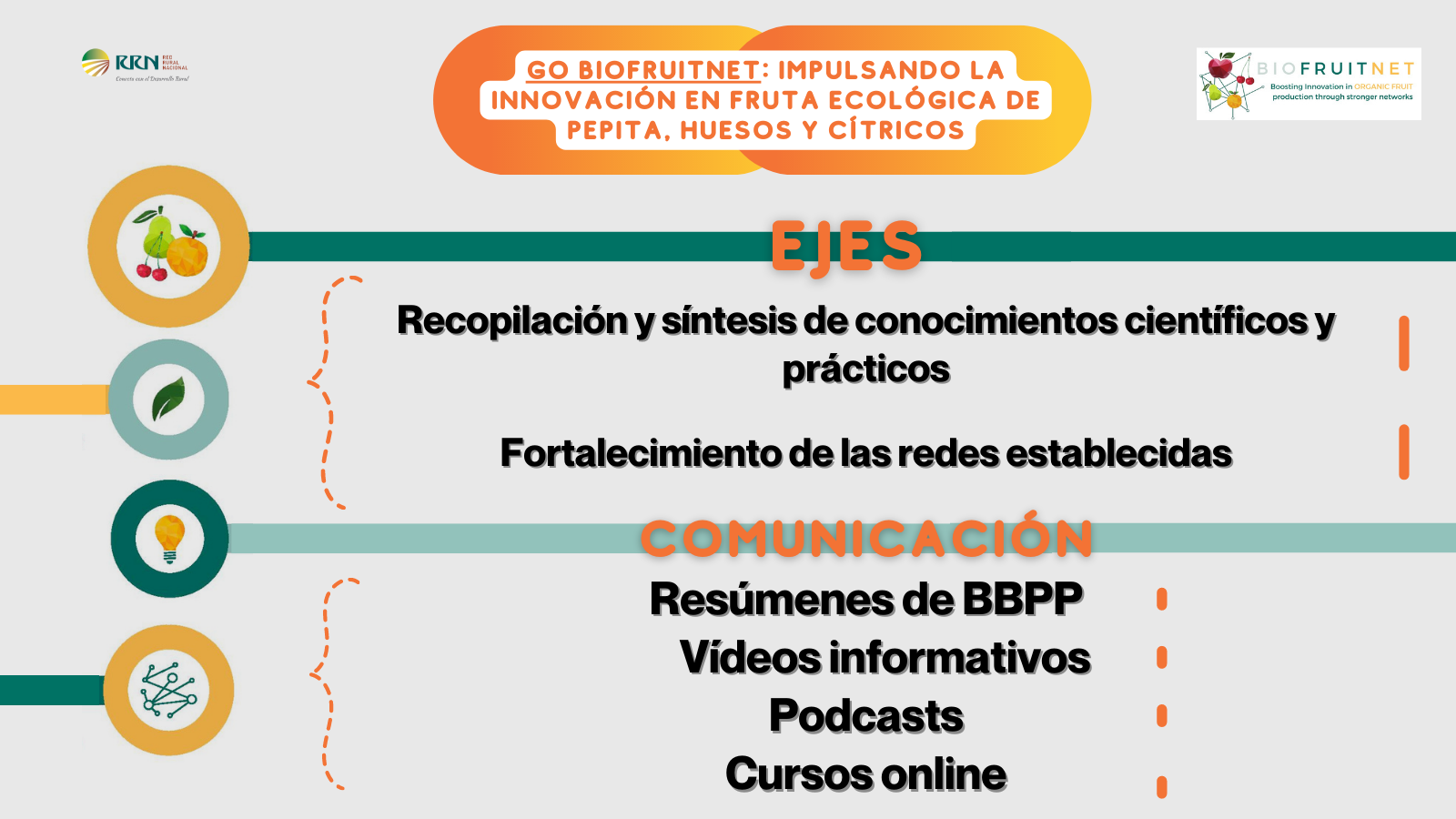
28 de October de 2022
Innovación
This Task Force was created with the aim of facilitating the initiation, profitability, and long-term sustainability of organic fruit production in EU countries.
- The BIOFRUITNET Operational Group (GO) project aims to strengthen and generate new networks between the different European actors involved.
- Its objective is to disseminate knowledge about organic fruit cultivation to make it known in countries of the European Union (EU).
On many occasions, existing innovations in certain scientific and technical fields of the agricultural world are not utilized by the beneficiaries of these advances. The GO BIOFRUITNET is born to Promote innovation in organic fruit production by strengthening networks and thus facilitating the transfer of knowledge among the stakeholders involved.
This Task Force was created with the aim of facilitating the initiation, profitability, and long-term sustainability of organic fruit production in EU countries.
Its activities focus on organic pome, stone, and citrus fruits , and, as its website states, the project aims to "strengthen the competitiveness of European production."
To achieve this, its actions are based on two axes:
- Compilation and synthesis of scientific and practical knowledge: through online training, podcasts, videos, and short articles to expand this content across EU countries.
- Strengthening established networks: creating and strengthening synergies between networks of organic fruit producers and stakeholders through information sharing.
The project involves a team of specialized European researchers who analyze various studies on pest and soil management, varieties, and diseases related to organic fruit that already exist.
Communicate and disseminate
This work would be useless if knowledge were not transferred to stakeholders. According to Ángela Morell and Ana Isabel Hidalgo, European Project Managers and a technician in the International Department of Ecovalia —the association responsible for BIOFRUITNET's communications—who spoke to RRN, the goal is to generate "materials aimed at producers in attractive, easy-to-use formats and with highly practical information." For example:
- Creation of "Best Practices" summaries: for managing specific topics for each type of crop. So far, 19 copies have been posted in English , but the goal is to translate them into nine other languages (including Spanish) and reach 100 summaries.
- Video production and publishing: 19 of the 25 planned videos have been published on YouTube in English, and these will also be translated into nine languages.
- Podcasts: Five podcasts will be posted with experts in different types of fruit, discussing the best ways to handle each crop.
- Online courses: Two free online courses will be held on each fruit group. One has already been held oncitrus fruits , with nearly 300 participants.
Components and financing
BIOFRUITNET is coordinated by NATURLAND , has 16 partners ( Ecovalia , INNOVARUM , Inhort , GRAB , Laimburg , IFOAM OE , CIHEAM-IAMB , VSUO , FÖKO , FiBL , UCPH , HortiAdvice , SLU , Delphy and ALOA ) from 12 European countries including seven technical and research organisations, three organic farmers' associations, two universities, two advisory boards, one European association and one SME involved in the development and implementation of the project.
This project has received 100% funding from the European Union's Horizon 2020 research and innovation programme under Grant Agreement No. 862850. Its total budget is €1,999,302.50.









